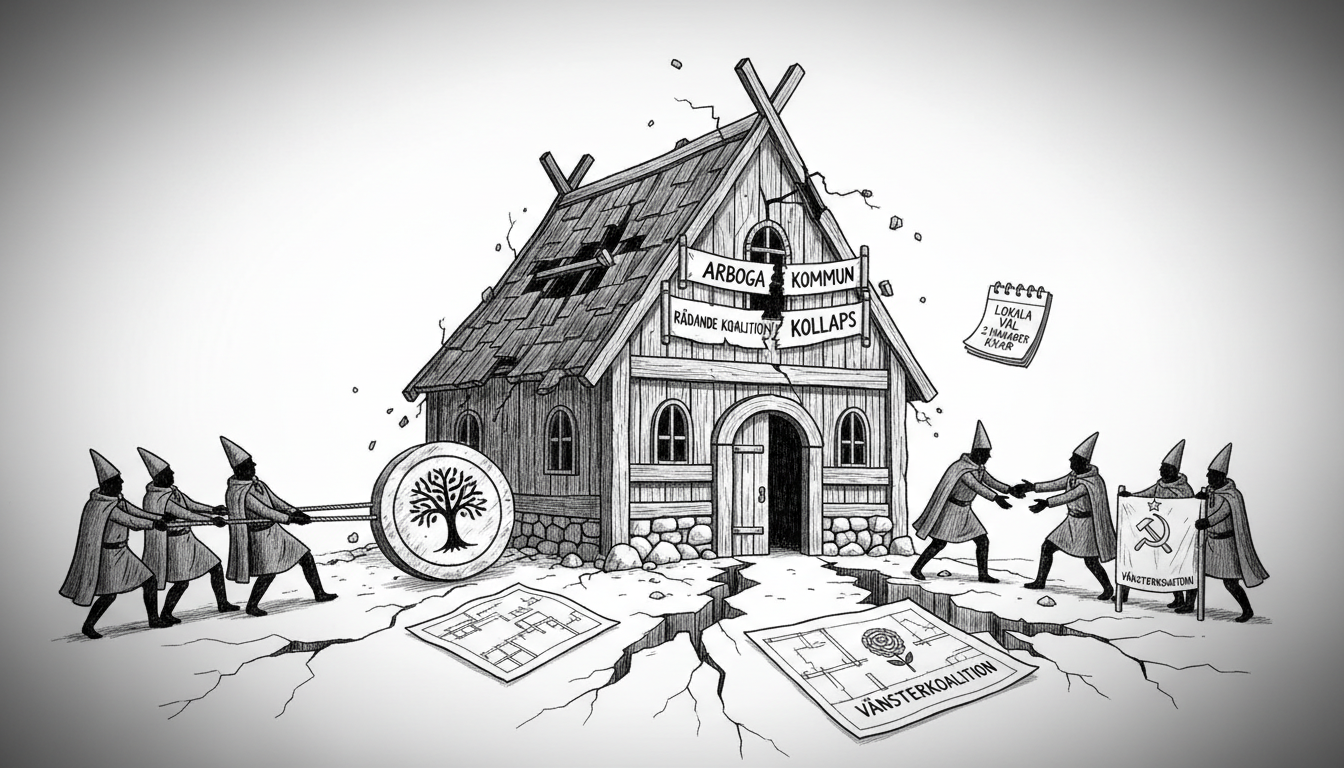Arboga's municipal government faces a dramatic political shift as the Center Party abandons its coalition partners. The move comes just months before the next scheduled local elections, creating immediate uncertainty in the central Swedish municipality.
The Center Party announced it would support a new budget proposed by the Social Democrats, Left Party, and Green Party. This decision effectively ends the previous four-party alliance that had governed Arboga since the last election. The former coalition included the Moderate Party, Liberals, Christian Democrats, and Sweden Democrats with Center Party support.
Håkan Tomasson from the Moderate Party expressed frustration about the sudden change. He said the Center Party went behind their backs and failed to communicate their intentions clearly. The Center Party chairman cited fundamental differences on values and integration policies as the reason for the shift.
Local politics in Sweden often see such realignments between elections. Municipal councils operate with proportional representation, making coalition building essential. Minority governments frequently depend on support from shifting alliances to pass budgets and key decisions.
An emergency meeting of the municipal council will occur on December 15 to appoint new representatives. The municipal board will first address recalling the current administration's mandate during a Tuesday session.
Andreas Silversten from the Social Democrats confirmed the Center Party initiated contact weeks ago about potential cooperation. This suggests the political realignment resulted from extended negotiations rather than spontaneous decision.
Swedish municipal politics frequently experience such shifts between elections. The proportional system means parties must constantly negotiate support. Center Party moves often indicate broader political trends across Sweden.
Local residents now face uncertainty about ongoing municipal projects and services. Budget priorities may change significantly under the new proposed alliance. The coming weeks will reveal how smoothly the transition occurs and what specific policy changes residents can expect.
The political landscape in Arboga reflects wider patterns in Swedish politics. Center parties sometimes pivot between center-right and center-left blocs depending on specific issues. This flexibility gives them considerable influence despite their moderate size.
What does this mean for international observers? It demonstrates the dynamic nature of Nordic local governance. Coalition governments can change direction quickly when smaller parties reassess their alliances. The situation bears watching as it might signal similar shifts in other Swedish municipalities.

